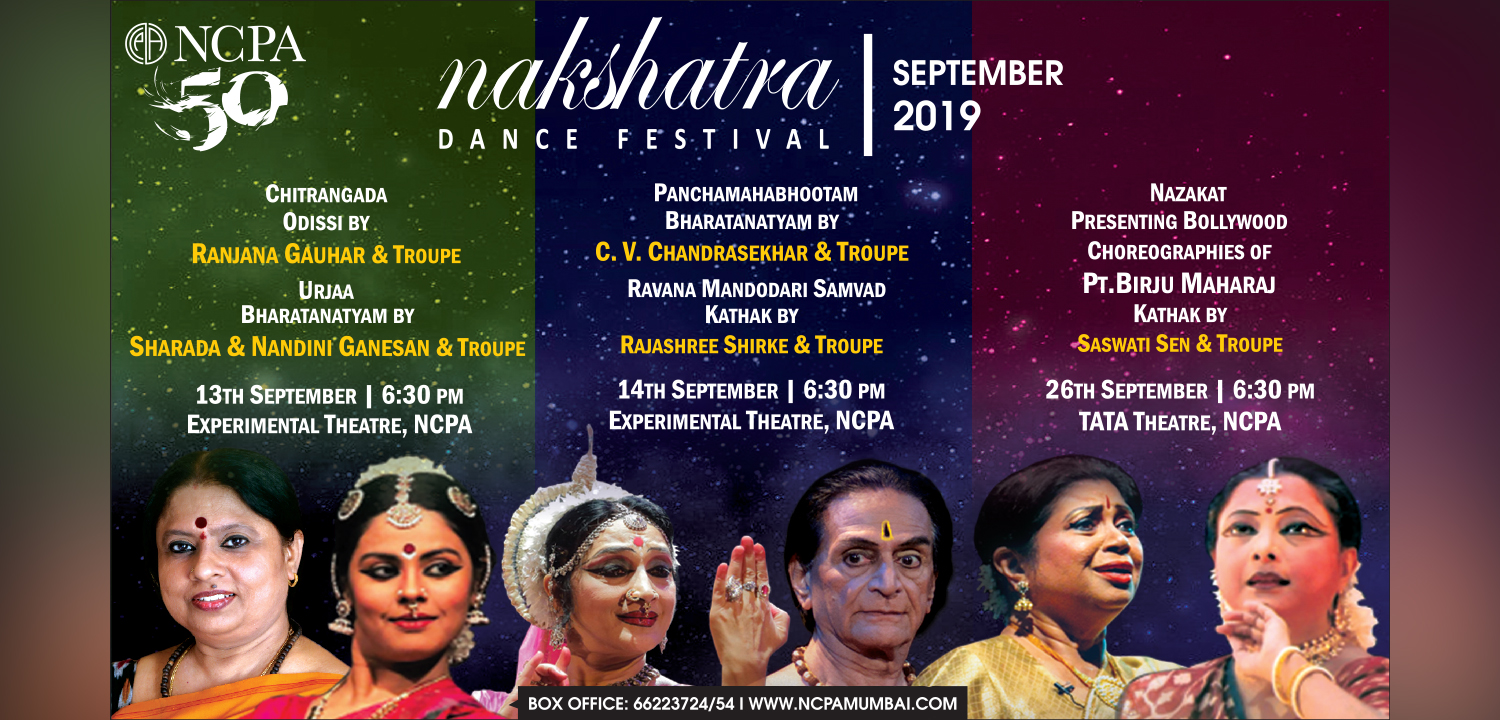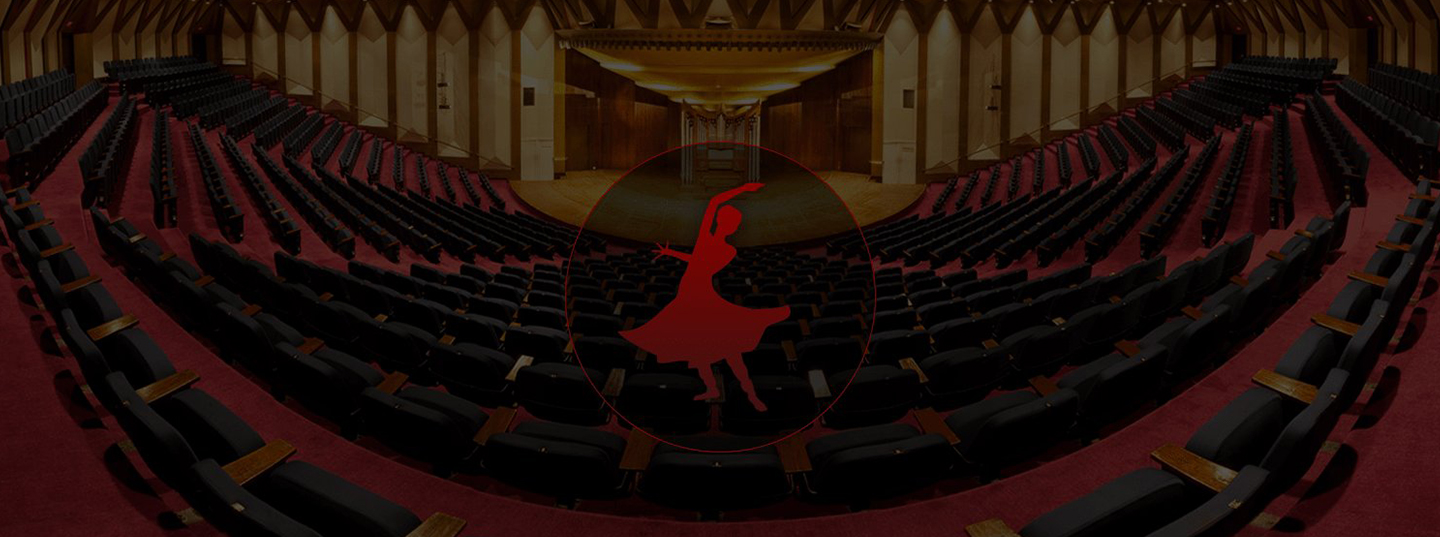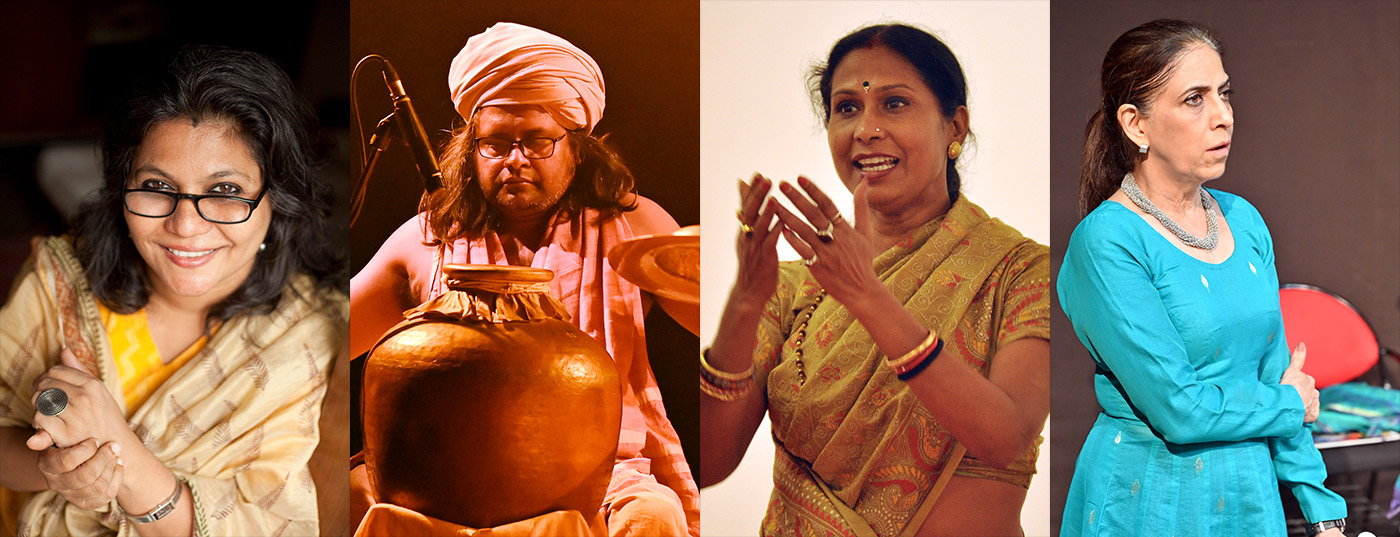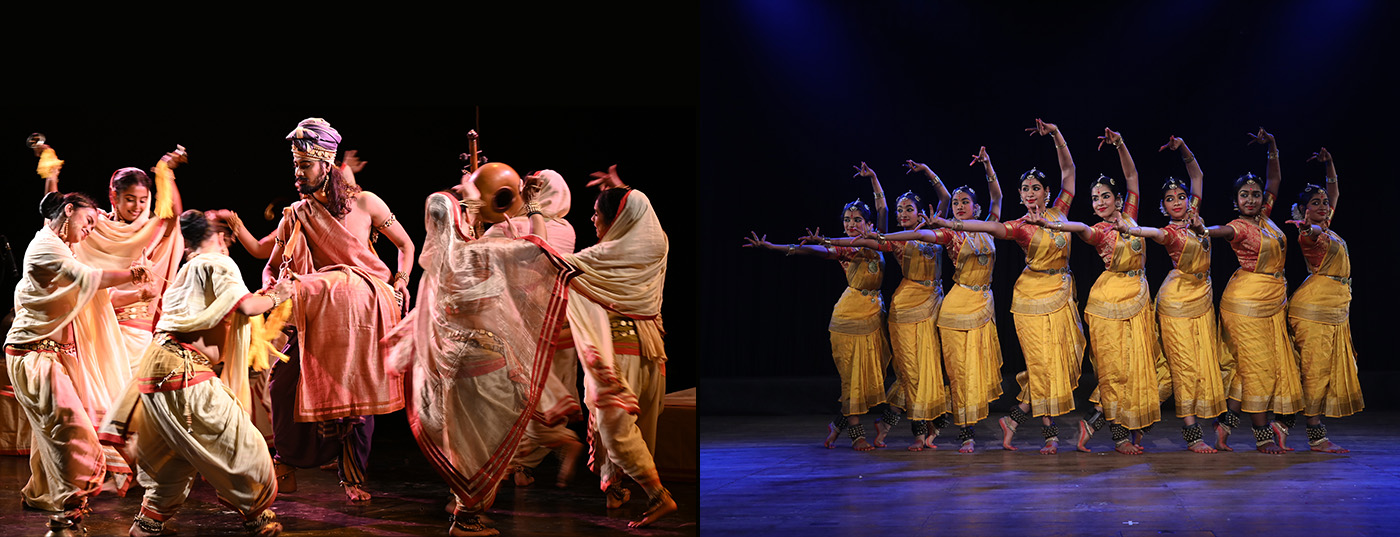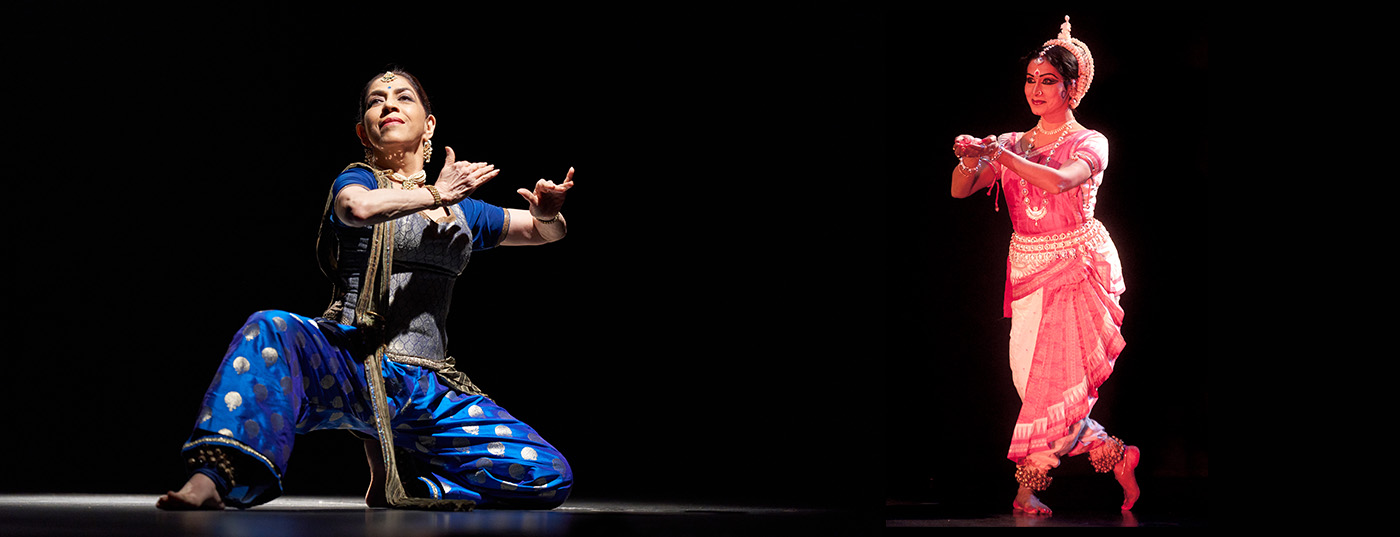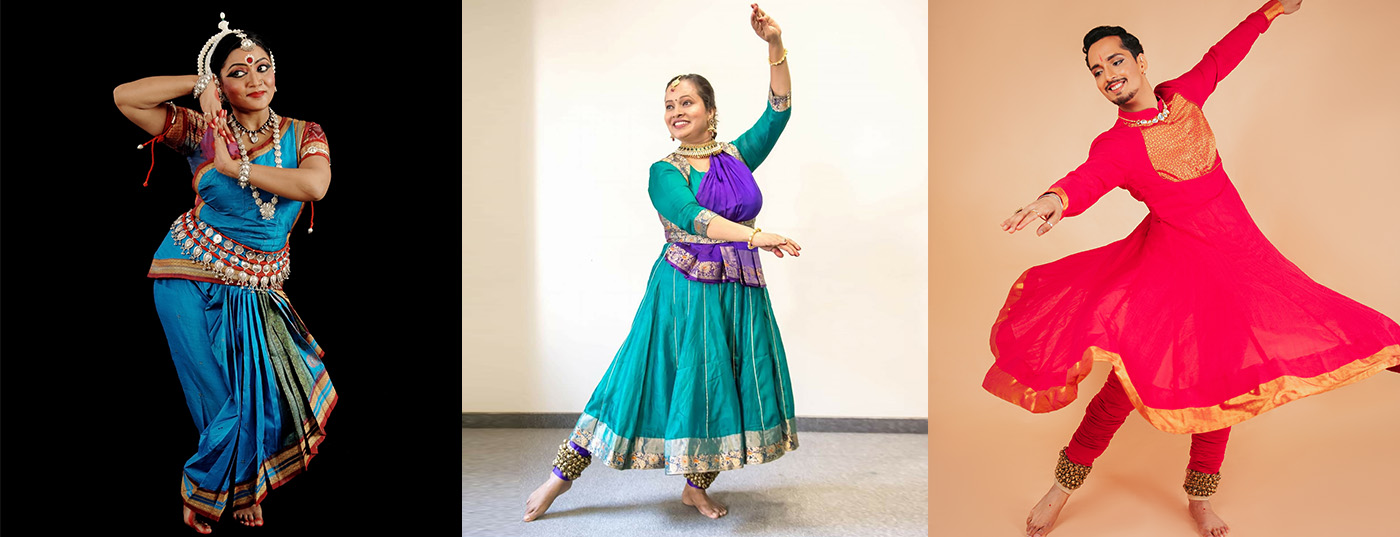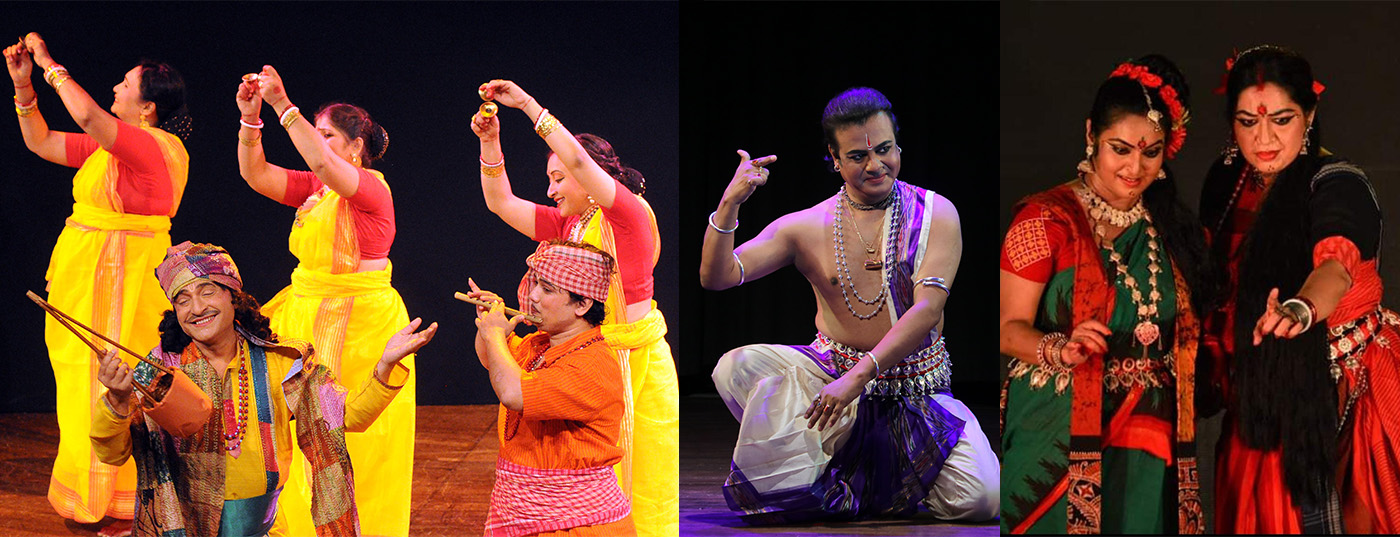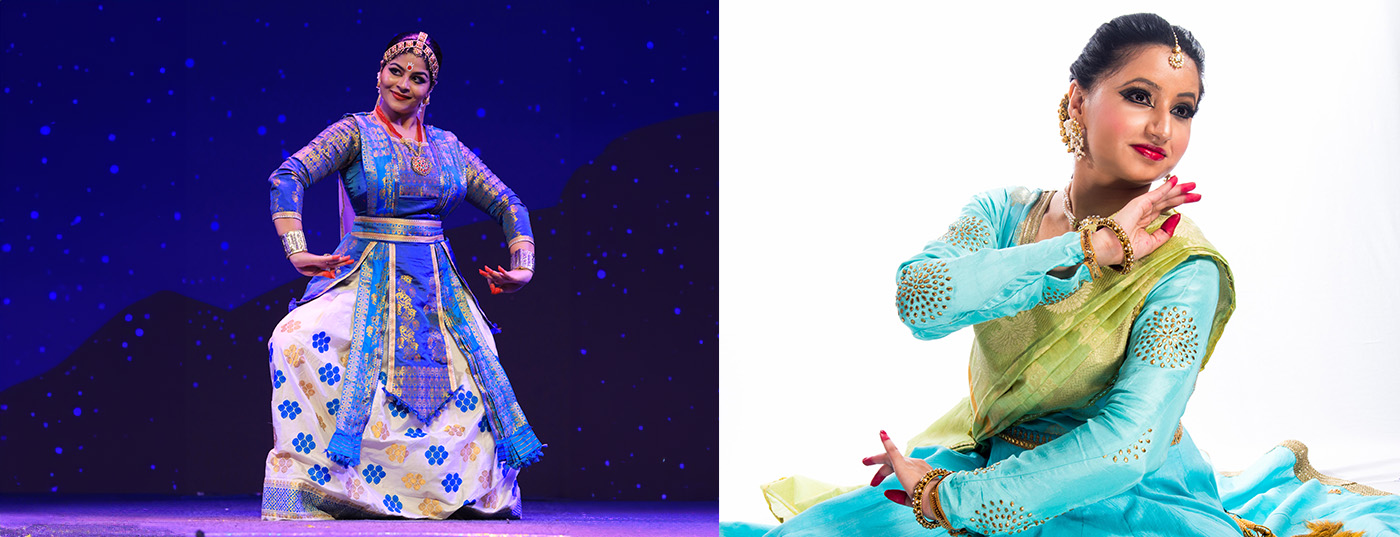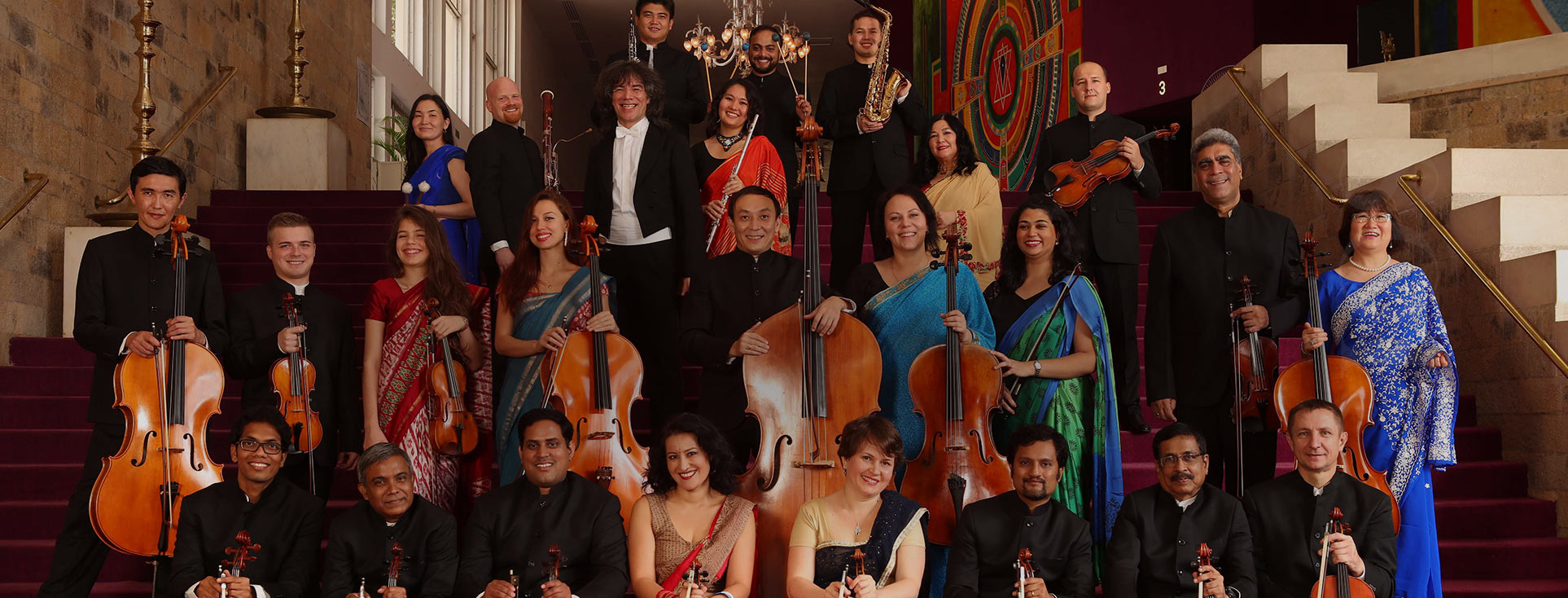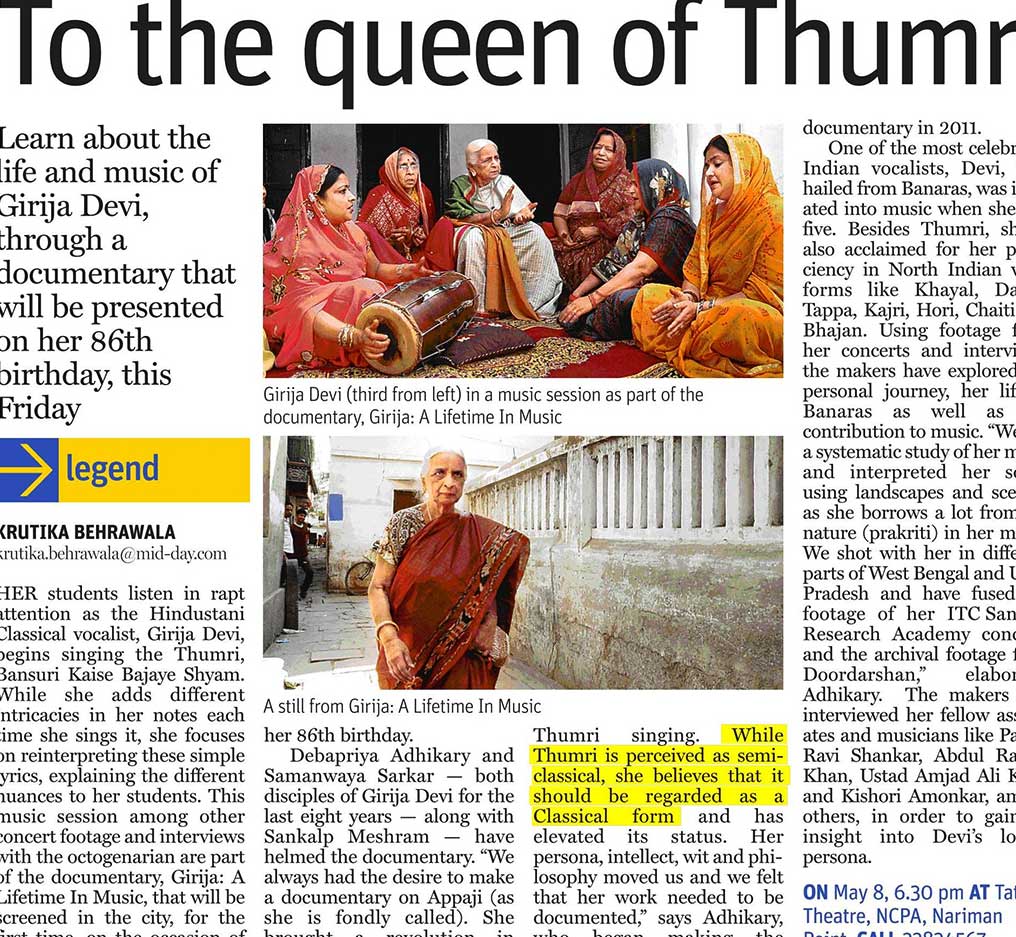-
Venue
Experimental Theatre -
Date Time
14 September 2019 | 6:30 pm
-
Member Price
Rs.360 & 270/- -
Non Member Price
Rs.400 & 300/-
Event Details
Celebrating 50 remarkable years of the NCPA, the Nakshatra Dance Festival is back with some iconic productions presented over the past decade as well as some new works by masters of the form. The festival aims to feature innovative group choreographies. This year brings stellar performances by eminent choreographers such as Ranjana Gauhar & troupe (Odissi), Saswati Sen & troupe (Kathak), C. V. Chandrasekhar & troupe (Bharatanatyam), Rajashree Shirke & troupe (Kathak) and Sharada & Nandini Ganesan & troupe (Bharatanatyam).
Panchamabhutam
by C. V. Chandrasekhar & troupe (Bharatanatyam)
Ravana Mandodari Samvaad
by Rajashree Shirke & troupe (Kathak)
(Approx.120 mins)
Panchamahabhutam is a journey into the idea and philosophy of the five primordial elements: prithvi (earth), akasa (ether/space), jala (water), vayu (wind) and agni (fire). This production makes a visual presentation of the various concepts on the panchamahabhutas in the shastras and their presence in nature as experienced by the choreographer. The choreography adheres to the grammar of Bharatanatyam and uses the rich vocabulary of the dance style to explore the idea of the five elements. The work begins with an invocatory verse from Kalidasa’s Abhijnanasakuntalam dedicated to Ashtamurti Shiva. The prelude is followed by five sections, one dedicated to each element. Each segment ends with a prayer to the supreme spirit personified as the element. The work culminates in the dancers’ awe at witnessing the magnificence and grandeur of the five–faced Shiva who embodies the panchamahabhutas.
Ravana Mandodari Samvaad is the dialogue between Ravana and his wife Mandodari. Mandodari warns Ravana that abducting another’s wife is an unethical and immoral act that would have severe consequences and would surely spell his end. Ravana mocks her, saying that such requests reek of cowardice and weakness as a woman. What ensues is an epic battle between Rama and Ravana, where Ravana meets his end. Mandodari cries out, seeing her beloved husband’s dead corpse. Mandodari, powerful as she was, firmly believed in the fundamental truths of a peaceful life where there was no room for ill-thought and treachery. She only wanted and suggested harmony and well-being for everyone. This production, in an experimental theatre format, emphasises the natya element of the story-telling art form, from the temples of Northern India.
Box office now Open.
